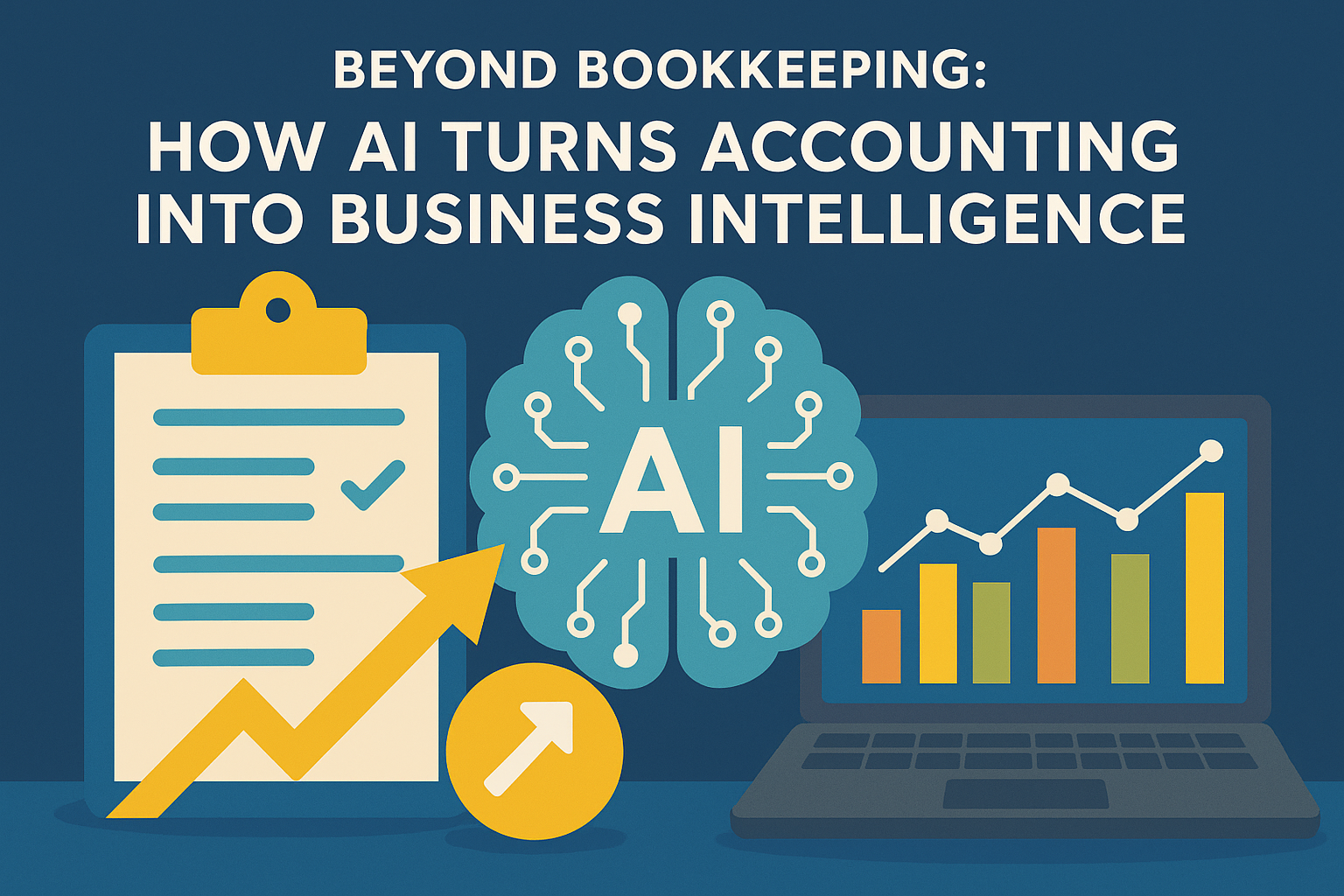
For decades, accounting was viewed as a necessary back-office function — essential for compliance, but rarely seen as a driver of strategy. Bookkeeping meant tracking receipts, entering data, and producing reports long after the decisions had already been made.
But that era is ending.
With the rise of Artificial Intelligence (AI), accounting is evolving from a recordkeeping process into a business intelligence engine — one that gives SMEs real-time clarity, predictive insights, and strategic control over their operations.
Here’s how AI is reshaping accounting into one of the most valuable sources of business intelligence today.
Traditional accounting tells you what happened.
AI-powered accounting tells you what’s happening now — and even what’s likely to happen next.
By analyzing historical data and identifying spending patterns, AI systems can forecast:
This predictive intelligence turns financial management into a proactive discipline.
Instead of reacting to financial challenges, business owners can anticipate and plan ahead.
Most SMEs still rely on monthly or quarterly reports to evaluate performance.
But in a fast-changing market, those reports arrive too late.
AI enables continuous, real-time accounting that updates instantly as transactions occur.
This gives business owners immediate visibility into:
When information flows live, decisions can follow suit — faster, smarter, and more confidently.
AI doesn’t just speed up accounting; it improves accuracy dramatically.
By automating data extraction, classification, and reconciliation, AI ensures every number is verified and consistent.
That means the insights drawn from your data are trustworthy — a crucial difference between mere automation and true intelligence.
AI tools like ccMonet reinforce this reliability through a hybrid model:
automation ensures speed, while human experts validate compliance and accuracy.
Data is only powerful if people can understand it.
AI now goes beyond charts and numbers — it provides explanations, summaries, and recommendations in plain language, such as:
These insights empower decision-makers, even those without accounting backgrounds, to act confidently based on clear, data-driven reasoning.
In the past, finance was isolated — accountants handled the numbers, while management handled decisions.
AI bridges this gap.
By integrating with other business systems, intelligent accounting tools connect financial data with:
This integration transforms finance into a strategic intelligence layer that informs pricing, operations, and expansion strategies — in real time.
AI automation removes hours of repetitive work:
With these tasks handled automatically, finance teams can shift focus from clerical work to strategic analysis — turning accounting from a cost center into a growth driver.
For SMEs operating across multiple branches, currencies, or countries, consolidating data has always been complex.
AI simplifies this through intelligent mapping and real-time synchronization:
Business leaders gain a single, clear view of performance across every region — allowing smarter expansion and better resource allocation.
AI has elevated accounting from an operational necessity to a strategic advantage.
It transforms financial data into intelligence that drives:
The difference is clear: traditional accounting records what happened; AI accounting explains why it happened — and what to do next.
For modern SMEs, embracing intelligent accounting isn’t just about efficiency.
It’s about building a smarter, more resilient business ready for the future of finance.